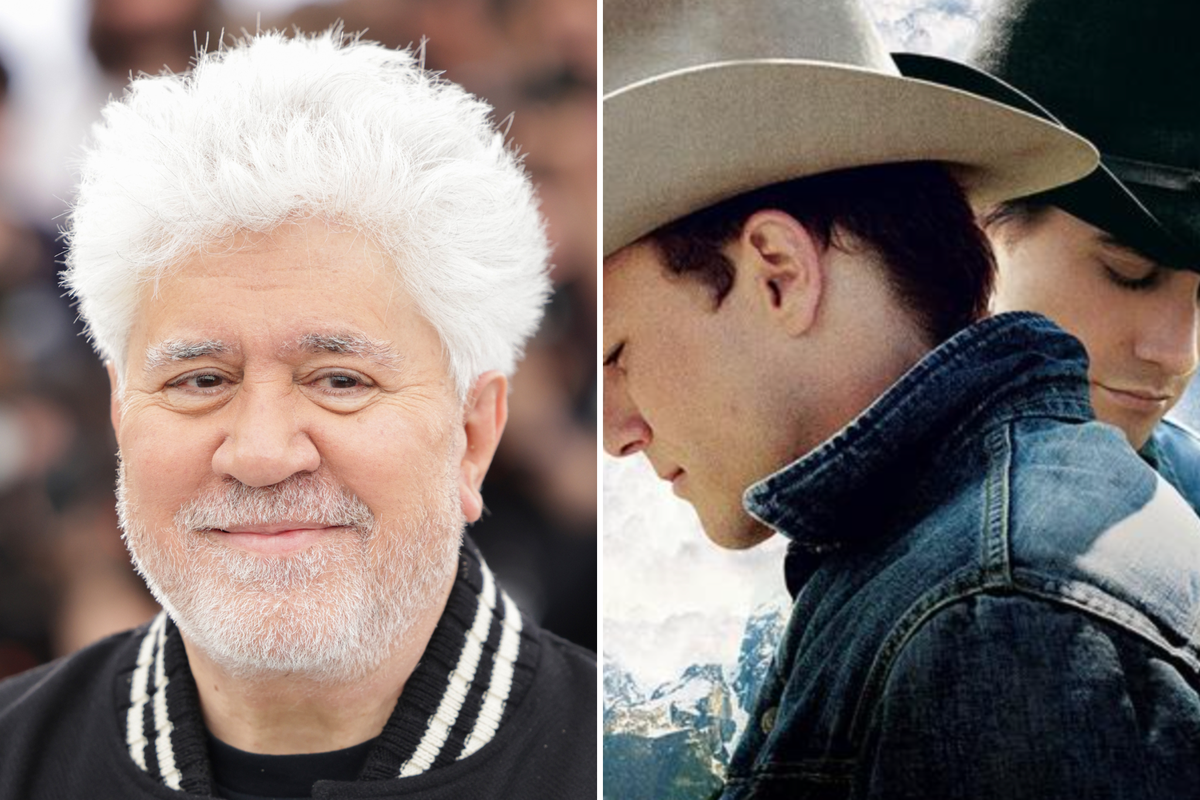
Spanish director Pedro Almodóvar has revealed the reason he decided to pass on Brokeback Mountain nearly 20 years ago.
The acclaimed director, 73, returns to the Toronto International Film Festival (TIFF) this year to promote his latest queer short, Strange Way of Life, which takes on similar themes to the groundbreaking 2005 gay western.
In a recent conversation with The Hollywood Reporter, Almodóvar, who will also be honoured at TIFF’s Tribute Awards, was asked why he turned down the offer to direct the drama starring Jake Gyllenhaal and the late Heath Ledger, which went on to win three Oscars including Best Director for Ang Lee.
“It was the first time that I really thought about making a movie in English because I loved that story – I knew the [book] by Annie Proulx and I loved it, and the script of Larry McMurtry was very good too. But the thing is, I was insecure with my English,” the Spanish-speakingVolver director explained.
“Also, in Annie Proulx’s story, one of the things that to me really stood out was the physicality of the erotic encounters that were almost animalistic in nature. But some of that sort of physicality of desire I didn’t see translated into the script.”
“I think Ang Lee made a wonderful movie – I loved Brokeback Mountain – and I think he just made it as far as possible, but I got the feeling that I would not have been completely free to do what I wanted. Heath Ledger and Jake Gyllenhaal are superb in the movie,” he added, his remarks echoing those he made last year.
“It was better that Ang Lee did it and not me.”
Pedro Almodóvar and Brokeback Mountain— (Getty / Rex Features)
The film was nominated in a total of seven categories at the 2006 Academy Awards, also winning Best Adapted Screenplay and Best Original Score.
Ledger and Gyllenhaal led the drama as two cowboys in the 1960s who fall in love in the rural West.
Elsewhere, Almodóvar addressed the hotly debated topic of whether or not heterosexual actors should be allowed to take the roles of gay or queer characters.
“The essence of acting is, in fact, to pretend, to be someone other than who you are, even in your own essence. That is at the core of acting,” the openly gay director said.
“So, for example, absolutely a heterosexual actor can play a homosexual character and vice versa. If Hollywood is so obsessed, as it is right now, with representing minorities, be they Latinos, Asians or people with disabilities, they should actually hire them to do the writing.”







